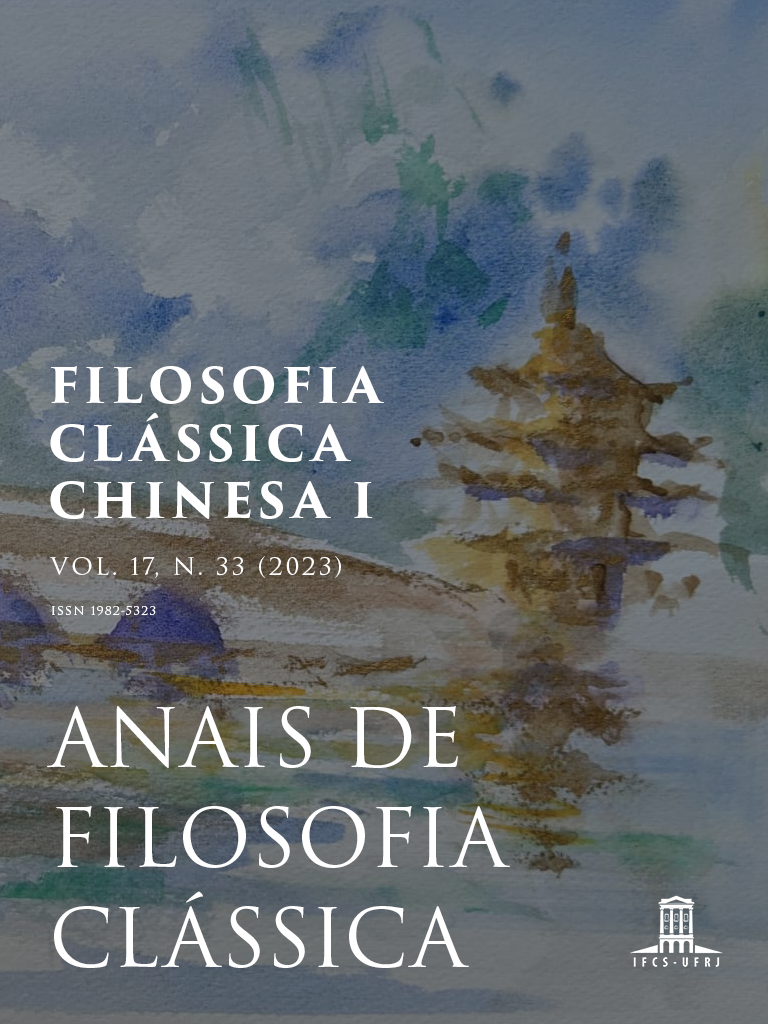Vol. 17 No. 33 (2023): Chinese Classical Philosophy I

The contemporary planetary landscape, despite fluctuations in international dynamics, predominantly leans toward globalization. Nonetheless, the assumption that this trajectory can be encapsulated within a singular model is contentious. The current milieu reveals various stakeholders vying to shape both regional and global frameworks of interaction. Crafting guidelines for these interactions is paramount, as their absence might result in discord, jeopardizing the collective achievements of human civilization. Recent political developments unequivocally highlight the stark differences that emerge when individuals or groups, grounded in distinct core values, navigate the same scenarios. If these disparities go unacknowledged, they can derail strategic efforts, underscoring the imperative of fostering a nuanced understanding of shared human values alongside cultural divergences. Peace and lives requires identifying a shared accepted foundation while simultaneously recognizing the nuances that may emerge as points of contention.
The recent surge in technological development, communications, and international mobility leverages the achievements of Western science. This has sparked the notion that the human worldview must be globalized according to these same standards. However, such a paradigm neglects the historical nature of human development, which unfolds over tens of thousands of years rather than centuries. Each worldview results from adaptations to particular natural and social environments, inherently incorporating unique and irrevocable traits that cannot be voluntarily modified by agreement. The continuous development of societies has produced systems of ideas about the world, methods of acquiring knowledge, modes of interacting with the environment, and, most critically, shared visions of the future. In Western culture, these elements are conceptualized as “philosophy.” From this standpoint, the vital task in shaping humanity’s shared future is to comprehend diverse philosophies, identify common ground, and appreciate essential differences. Only through this process can we aspire to achieve sustainable societal development, preserve our finite resources, and create a better world for future generations.
This special issue seeks to present philosophies from different regions. It does not aim to offer a preconstructed system of beliefs and thoughts, as that would contradict the very idea of dialogue between civilizations. Instead, it showcases various perspectives on the shared world and proposes distinct philosophical frameworks. During the compilation of this work, it became evident that many contributions share a unifying idea we have conceptualized as “Thinking within Nature.” This concept involves a conscientious regard for the world that all humans inhabit. However, this is not a naïve desire to remain in an unchanging state, which is an illusion. Rather, it entails recognizing the guiding role of the world, embracing its changes, and affirming the creative roles of humanity and individuals. Only by acknowledging our responsibility for the past, present, and future can we collectively advance along the shared path of sustainable development.
We must also recognize the limitations of this endeavor. Any attempt to present equal portions of philosophies based on geographical, theoretical, or other principles would merely reflect our own biases, current understandings, and available knowledge. The contributions in the first issue of this volume are grounded in Chinese philosophy, which has historically emphasized thinking within nature. We hope this focus will inspire representatives of other traditions to assert their unique ways of thought, providing the best philosophical contributions to the idea of a shared humanity.
Editor of the Proceedings of Classical Philosophy: Fernando Santoro, UFRJ, Brazil
Co-Editors of the Special Editions “Chinese Classical Philosophy” and "Non-Western Classical Philosophies"
Caroline Pires Ting, UFRJ, Brazil; Verônica A. Costa, UFRJ, Brazil; Ilya A. Kanaev, Sun Yat-sen University, China.

